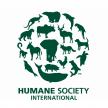Humane Society International



Brazil has a long tradition of incorporating animal protection in its legislation, since the main Decree relating to animal welfare dating back to 1934. Decree 24.645 establishes protection against cruelty and ill-treatment of animals. Environmental Crimes Law 9,605 of 1998 prohibits engaging in an act of abuse for domesticated or wild animals. Since the API was first published in 2014, this law has been strengthened to make it a crime to mistreat a domesticated animal. Furthermore, painful or cruel experiments on living animals, even if conducted for educational or scientific purposes, are considered crimes when alternatives resources exist. Furthermore, legislation on the slaughter of animals was improved in 2017, when Normative Instruction No. 12 of 2017 mandated humane slaughter to be carried out only by qualified establishments and employees. In 2017 and 2018, further legislation was enacted prohibiting cruelty during the transport of live animals. With regards to companion animals, federal legislation 13,426 enacted in 2017 regulates the humane dog and cat population management, through measures such as extensive spay-and-neuter campaigns.
However, there is still room for improvement in many animal welfare areas. Notably, while Senate Bill 351 of 2015 makes a breakthrough acknowledgement that animals are no longer considered things in law, their sentient status is still not clearly defined. Moreover, there is a clear lack of nationally applicable legislation with regards to the rearing of farm animals. The worst forms of confinement, such as sow stalls, farrowing crates and cages, are not prohibited in legislation, and halal slaughter is authorised without prior stunning. Brazil’s economy largely relies on its agricultural exports, and the live animal exports is inherently cruel. The use of animals for entertainment is still authorised, such as in circuses or rodeos, which causes animal cruelty. In 2017, an amendment to the Constitution specified that some sports using animals, such as rodeos and vaquejadas, could be exempt from cruelty consideration if considered of cultural importance. However, culture should never be an excuse for animal abuse. Furthermore, the use of animal testing for cosmetic products has not yet been banned.
Animal welfare is institutionalised in the Ministry of Agriculture, Livestock and Food Supply (MAPA) through regulations, policies and committees dedicated to the subject. The National Council for the Control of Animal Experimentation of the Ministry of Science, Technology and Innovation oversees the use of animals in science and education. The Ministry of the Environment oversees issues concerning wild animals, although animal welfare is not an institutionalised subject within this Ministry. Its division, the Brazilian Institute for Environmental and Renewable Natural Resources (IBAMA), is the relevant federal administrative agency responsible for policing and enforcing of federal environmental laws. The Ministry of Environment works throughout the country with partners, for example, with agencies such as Interpol and local police on issues such as illegal wildlife trade. However, acknowledging recent Decree 9962/2019, there may be ongoing changes at government level with regards to responsibility for animal welfare.
The Government of Brazil is urged to enshrine animal sentience in legislation, recognising that vertebrates, cephalopods and decapod crustaceans are sentient. With regards to farm animals, the Government of Brazil is urged to ban all slaughter conducted without prior stunning. Furthermore, the Government is highly encouraged to enact more detailed, species-specific legislation with regards to the rearing of farm animals, which would ban the worst forms of confinement for these animals. The Government of Brazil is furthermore highly encouraged to adopt a Positive List of species, specifying which animals can be kept as companion animals, based on clear criteria including animal welfare and other relevant concerns. Such a list would help with preventing the exotic pet trade, which negatively impacts wild animals. The Government of Brazil is also urged to ban fur farming, as well as the culling of stray animals. The Government of Brazil should also outlaw cruel practices which use animals for entertainment, such as circuses and rodeos. It is positive that hunting of animals is prohibited at the federal level, however, some States still allow recreational hunting. The Government of Brazil is thus highly encouraged to ban sports hunting throughout the whole country. Further legal and policy recommendations are associated with each indicator and contained in the relevant sections of this report.
Australia is a federal country, whereby most of the responsibility for animal welfare has been devolved to States and Territories. Since the API was first published in 2014, there have been marginal improvements for animal welfare. The Australian Capital Territory has fully banned sow stalls, though there are no intensive pig farming activities taking place in the Territory. Importantly, in 2017, the State of Victoria recognised animals as sentient in its Animal Welfare Action Plan. A ban on greyhound racing was supposed to take effect in New South Wales in July 2017; however, this ban was reversed by NSW Cabinet ministers who only approved some additional changes to the industry. At the national level, the Government introduced a ban on testing cosmetic products and their ingredients on animals. The implementation of this ban has been postponed to July 2020. Furthermore, new measures and penalties have been announced in May 2018 through amendments to the Australian Meat and Livestock Industry Act 1997 and the Export Control Act 1982, which introduce penalties for live exporters who breach animal welfare standards.
However, there is room for improvement in many domains related to animal welfare. Animal sentience is still not recognised at the Commonwealth level. With regards to farm animals, the Commonwealth Government developed a series of National Model Codes of Practice for the Welfare of Livestock, providing guidance on various farming activities – from rearing to transport and slaughtering. These Model Codes cover various species – pigs, sheep, cows, poultry and goats – however, they are not legally binding. State and Territories have incorporated most these Codes into their legislation. These Codes leave wide exceptions to basic animal protections, legalising cruel practices such as the use of sow stalls and farrowing crates, piglet mutilations without anaesthesia and the confinement of egg-laying hens in cages, among others. Stunning is not required prior to slaughter.
The Commonwealth Government is aiming to replace the Model Codes with nationally agreed Australian Animal Welfare Standards and Guidelines. The development of such Guidelines has been incredibly slow, with only four completed – for cattle, sheep, land transport, sale yard and depots – in over a decade. There has been strong concern about industry influence and conflicts of interest in the government agencies developing the rules. Additionally, wild animal farming and fur farming are still allowed in Australia. Australian legislation also allows for animals to be used for cruel forms of entertainment, such as circuses, rodeos and races. Marine mammals are kept in captivity and trained for entertainment.
Under the Australian Constitution, legislative responsibility for animal welfare within Australia is primarily under the responsibility of state and territory governments, which all have animal welfare legislation. The Australian Government holds responsibility for trade and international agreements, which entails live animal export trade and animals processed at export-registered slaughter establishments. The former Australian Animal Welfare Strategy (AAWS) 2010-14 had established a national intergovernmental committee, the Australian Animal Welfare Advisory Committee, made up of representatives from state and territory government responsible for animal welfare and responsible for the delivery of the Strategy.
In late 2013, the Australian Government stepped back from leading any domestic animal welfare issues, as it announced the hand-over of the coordination and programme management for the ongoing delivery of the Strategy to the states and territories. The Australian Animal Welfare Advisory Committee also got disbanded. Since then, responsibility for animal welfare has been transferred from the Commonwealth government to the state and territory governments, which implies that animal welfare is not a crucial national issue. The then-Department of Agriculture and Water Resources (renamed the Department of Agriculture in 2019) commissioned Animal Health Australia to manage the process of developing the Australian Animal Welfare Standards and Guidelines, through the Animal Welfare Task Group. In 2015, the Voice for Animals Bill, which recommended to establish an Office of Animal Welfare as an independent statutory authority responsible for advising on the protection of animal welfare in Commonwealth-regulated activities, was defeated. At the State and Territory level, animal protection legislations are mostly enforced by state or territory government officers, and through the RSPCA via inspectors authorised by governments.
The Government of Australia is strongly encouraged to resume responsibility for animal welfare, emphasising its importance as a national issue and providing adequate funding for policy development, monitoring, enforcement and education. The Government of Australia is strongly encouraged to renew the Australian Animal Welfare Strategy with an adequate Implementation Plan. The Government should also demonstrate its commitment to animal welfare by enshrining animal sentience into law for, at minimum, all vertebrates, cephalopods and decapod crustaceans. With regards to farm animals, the Government of Australia is urged to enact all the Model Codes of Practice into legally binding legislation. Farm animal legislation should prohibit extreme confinement, mutilations without anaesthesia and ban live export. Moreover, the Government of Australia is urged to ban cruel practices for animals, which include fur farming, wild animal farming and the use of animals for entertainment – in circuses, rodeos, races and marine mammal shows, among others.
Further legal and policy recommendations are associated with each indicator and contained in the relevant sections of this report.